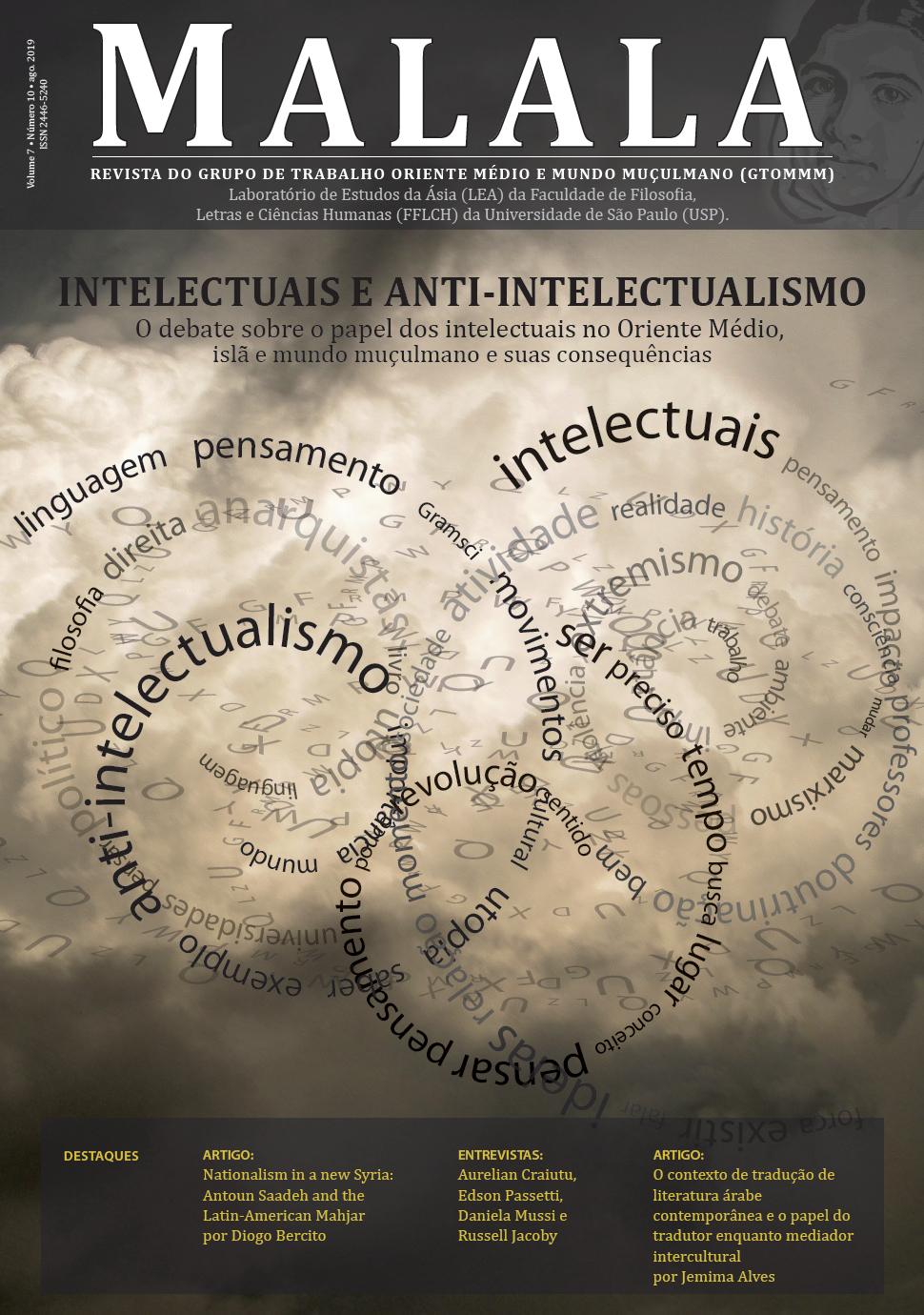Fanon now
Reflexions for a black intellectual insurgency
DOI:
https://doi.org/10.11606/issn.2446-5240.malala.2019.162546Downloads
References
Conlab – Congresso Luso-Afro-Brasileiro de Ciências Sociais, 2011, Salvador, Bahia. Anais
do XI Conlab – Congresso Luso-Afro-Brasileiro de Ciências Sociais, 2011.
BERQUÓ, Elza. Nupcialidade da população negra no Brasil. Campinas: Nepo/Unicamp,
1987. Disponível em: <http://www.nepo.unicamp.br/textos/publicacoes/textos_nepo/
textos_nepo_11.pdf>. Acesso em: 9 jan. 2011.
CARNEIRO, Sueli. Gênero, raça e ascensão social. Revista Estudos Feministas, v. 3, n. 2, p.
544, 1995.
FAUSTINO, Deivison Mendes. Frantz Fanon: um revolucionário, particularmente negro. São
Paulo: Ciclo Contínuo Editorial, 2018.
HOOKS, Bell. Intelectuais negras. Revista Estudos Feministas, v. 3, n. 2, p. 6. 1995.
MÜLLER, Tânia Mara Pedroso; CARDOSO, Lourenço. Branquitude: estudos sobre a
identidade branca no Brasil. Curitiba: Appris, 2017.
PACHECO, Ana Cláudia Lemos. Branca para casar, mulata para f… e negra para trabalhar:
escolhas afetivas e significados de solidão entre mulheres negras em Salvador, Bahia.
Campinas: [s.n.], 2008.
RIBEIRO, Djamila. O que é lugar de fala? Belo Horizonte: Letramento, 2017.
SILVA, P. E. da. O conceito de branquitude: reflexões para um campo de estudo. In: MÜLLER,
Tânia Mara Pedroso; CARDOSO, Lourenço. Branquitude: estudos sobre a identidade branca
no Brasil. Curitiba: Appris, 2017.
WEST, Cornel. O dilema do intelectual negro. In: The Cornel West: reader. Nova York: Basic
Civitas Books, 1999, p. 302-315 [Tradução e notas de Braulino Pereira de Santana, Guacira
Cavalcante e Marcos Aurélio Souza]. Disponível em: http://bolodomundo.blogspot.
com/2018/01/o-dilema-do-intelectual-negro.html. Acesso em: 18/10/2018.
Downloads
Published
Issue
Section
License
Copyright (c) 2020 Priscila Elisabete da Silva

This work is licensed under a Creative Commons Attribution-NonCommercial-ShareAlike 4.0 International License.
This journal offers free access to its content, following the principle that making free of charge-scientific knowledge available to the public provides greater worldwide democratization of knowledge. No fees will be charged for submitting work and/or publishing in the journal, as well as for reading, downloading, copying, distributing, printing, searching or referencing after publication. Readers and interested parties are free to share (copy or distribute the material in any media and format) and to transform or adapt parts of the material as long as it is for non-commercial use and the appropriate credit is given to the author and the journal, indicating how the data has been used and/or manipulated.





